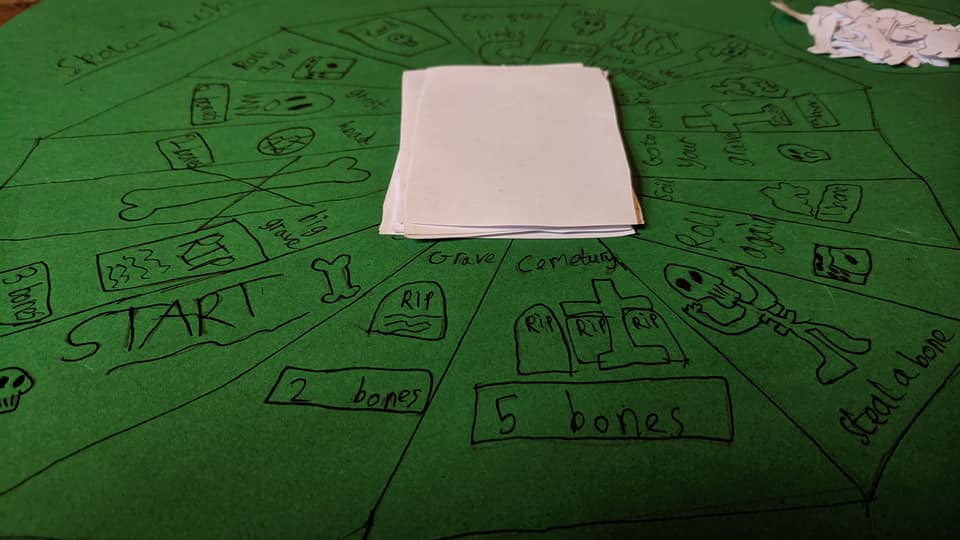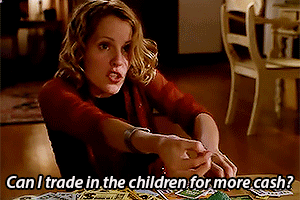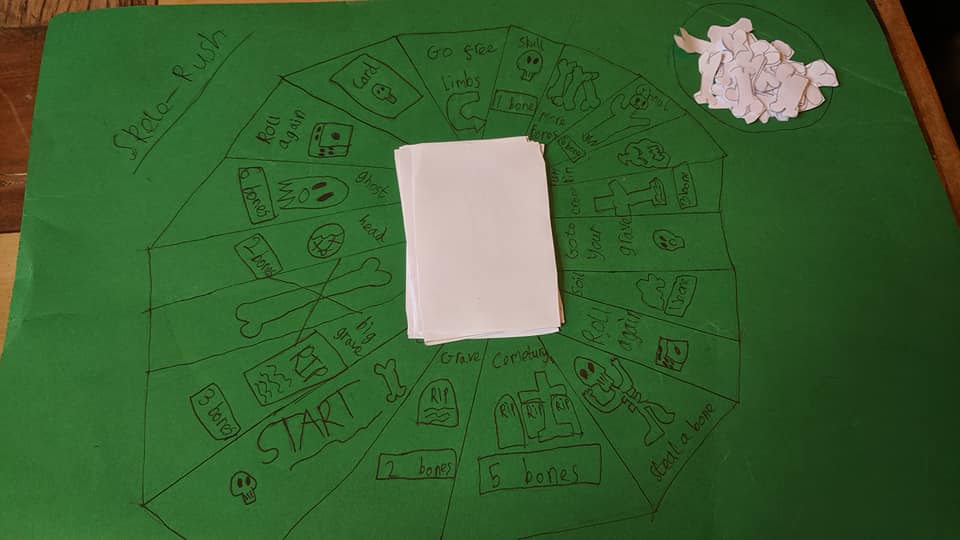
So, I like playing games. Most people know that by now. And I don’t mean, like, emotional games, although those can also be fun. Like today, when the poor guy valiantly organising nine graduation ceremonies for thousands of students for next week asked if I was ready to read out the names of the graduates, and I told him I was going to wing it. He went very grey. It was very funny.
No, I mean board games. I’m thinking of them again now because of an article I read on my commute this morning. It was by Alistair Croll and he discussed the pleasure he gets from making games with his daughter. Beyond the quality time together, there are a whole host of educational and emotional benefits from doing this, including embracing creativity, exploring questions of balance and fairness, teaching theory of mind and encouraging the iterative design process.
The article made me think about my own son’s recent efforts. Knowing that I like both games and bones, he created a most excellent game for Father’s Day:
Skele-rush is a madcap romp around a cemetery where you trade bones for tiles and try not to fall into an open grave. It fulfilled all of the developmental lessons Croll mentioned in his article – it is clearly creative and it took him days to make, he clearly thought through how it would work in terms of getting the balance of bones to rewards right (and included random cards to add surprise and a couple of opportunities to steal bones from each other with the Ghoul tile, because, well, who doesn’t like being a bit of a dick). He also spent a lot of time thinking through how people may react to some of the tiles and actions. There’s even an extensive rule book…
Last year I went over the York to take part in a gamification workshop where we thought about how to make board games from our subjects. One talk was by Dr Louise Robinson from the University of Derby who created the game Park Life to allow students to explore issues surrounding wildlife conservation. We’ve even tried an approach here too, where we asked our newbie undergrads to make board games featuring forensic science. This sort of work supports the development of group work and communication skills, as well as planning and creativity. It got our cohort thinking about the subject from another perspective, which in turn helped them appreciate more deeply the various aspects of forensic science. Clearly we were pioneers, because from next year you can even study Tabletop Game Design as a full undergraduate degree.

And it’s not just children who can benefit from playing board games. Certainly playing games with kids makes you realise that you don’t always have to win to have fun. Especially useful for someone as quietly competitive as me. Although never play Monopoly with my 9 year old, because he will fucking destroy you…
